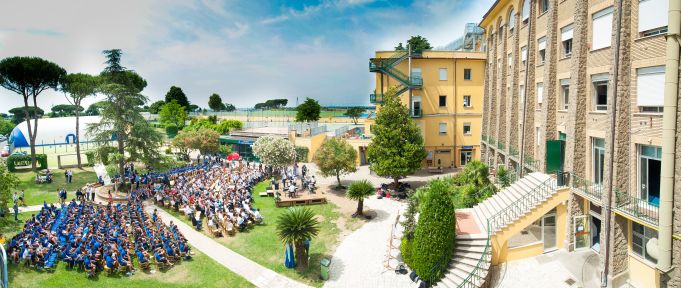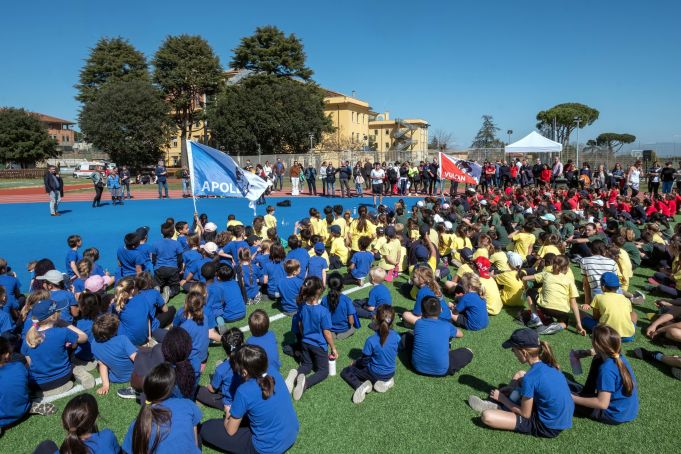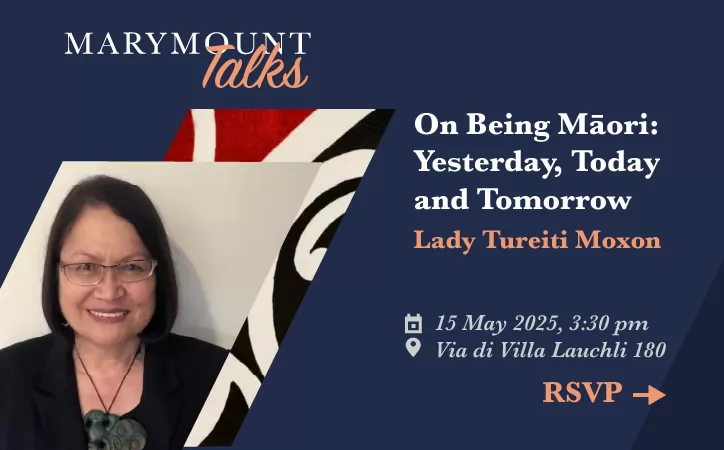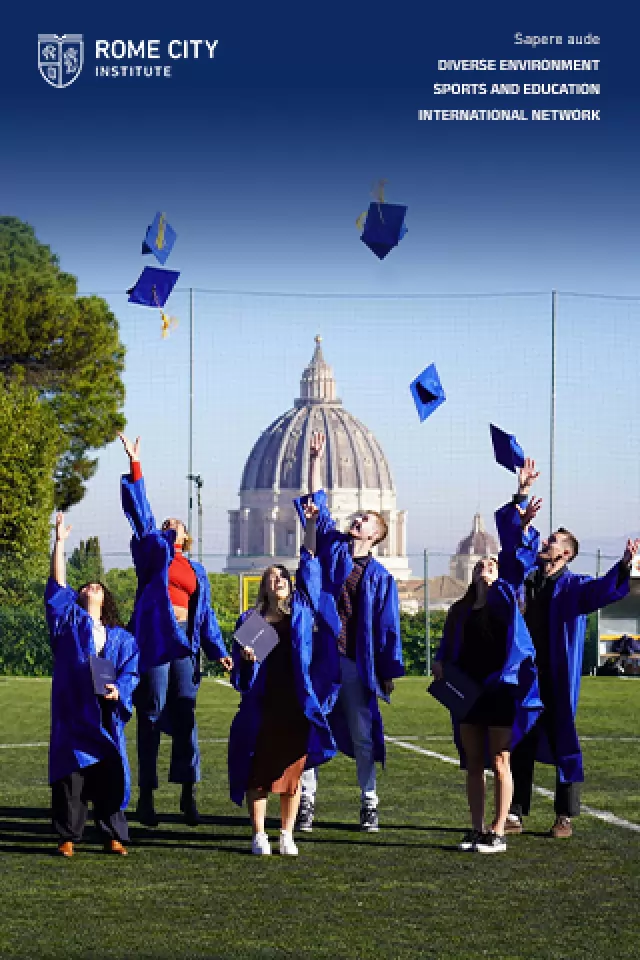Principal David Tongue joined St George’s from Brighton College Bangkok in January 2019, after leadership posts in the UAE, the Falkland Islands and Spain.

What would you consider to be the main difference between your current and previous post, from a city and school point of view?
On the surface, they couldn’t be more different. My previous post saw me setting up overseas campuses from scratch in Asia for a leading UK private school, whereas St George’s has a long and distinguished history in its own right. Living in Asia, one is confronted daily by expansion and modernity, whereas Rome is a city infused at all times with its rich history. However, there are more similarities than you would think - both schools consistently deliver academic excellence, region-leading examination results and entry routes into the world’s leading universities. Both schools are focused on providing the widest possible range of opportunities for every individual child and on delivering the very best British education in a caring, kind and supportive manner.
How many nationalities are there among the St George's students?
Astonishingly, there are currently 84 different nationalities represented on our pupil body. This makes us one of the most international communities of any British International School in Europe and unique in Rome. Our proud internationalism and close links with the city’s diplomatic community, international businesses and the United Nations, means that our pupils are exceptionally welcoming of new arrivals and quickly help them to settle into the city. Our pupils have so many different languages that English becomes the great ‘uniter’ of our pupils - it is the language of all interactions - not just in the classroom, but the sports field, the corridor and the playground. As almost all of our pupils come to us from other English-medium international schools around the world, it ensures a familiar experience for both them and their parents and provides great support at a time of transition for the whole family.

Being a British international school, how do you think Brexit will impact on the life of students, teachers and the school's goals?
Although it is impossible to link directly with Brexit, we are currently experiencing a huge surge in demand and some mobile British families are citing Brexit as a factor behind their decision to relocate at this point or in the near future. As a school, we have been planning carefully for all eventualities to ensure that any challenges that may arise - whatever the outcome of negotiations - do not have a negative impact on pupils, staff and parents.
In 2017, you opened a further Junior School campus, moving from the former Nomentana site to a new location near to the Vatican. Are you trying to reach a different target audience located in the city centre?
Our new City Centre Junior School shares the same vision and aims as our La Storta site and the pupil profile is remarkably consistent with our more established campus. This is true of not just its internationalism but also of its passion for a high quality and premium British International education. As almost all pupils from the City Centre Junior School progress onto our Senior School in La Storta we are very much one school across two sites. Having two sites for families with the youngest children helps those living in disparate parts of the city and helps us as a school to reduce our waiting lists and meet some of our surplus demand.
Do you have further plans for expanding St George's?
We are passionate about helping all our pupils to become highly successful individuals and to do that we need to continue to ensure that all of the professionals working at the school know all of our pupils really well. They need to know what their unique strengths are and help them to maximise these, and they need to know what their unique challenges are to help them to overcome them. Our founding vision - which remains true today, more than 60 years later - was to ensure that we could provide a world-class education for the expatriate population of Rome. As a British International School, we have a responsibility to meet the needs of international families who are relocating to Rome and it is frustrating if long waiting lists in some year groups prevent us from doing this. With our current capacity we are close to being the perfect size from a purely educational perspective, so balancing these two priorities will be a key focus moving forward.

How do you assess Rome's private and international school market?
The international schools market in Rome is very close knit and supportive, with each of the established schools having their own niche - whether parents are looking for an international or bilingual education primarily for Italian pupils or international families are looking for schooling that will enable them to transfer to other parts of the world if their employers decide to relocate them. There is a choice of schools for parents looking at a variety of curriculum models and price points. One area I am keen to develop further across the international schools here is in providing children with greater opportunities to participate and compete in a wider range of inter-school activities, sports fixtures, performing arts events and debates. This will help us as a school to be involved in more local events as well as those our pupils currently enjoy regionally and internationally.
What is the future of the private schooling industry, in Italy and abroad?
This is a very interesting time for international and private education. The growth of schools worldwide has been exponential and families are becoming increasingly aware that leading international schools such as ours are, in many cases now, outperforming even some of the most successful private schools in the UK. One potentially worrying trend is the increasing commercialisation of private education with profit being taken out of schools when it could and should be reinvested to improve the education of the children. Against this backdrop, parents need to be acutely aware of the benefits of not-for-profit schools such as St George’s, where any money paid by parents in fees goes directly to further developing the school.
Interview by Marco Venturini
This article appeared in the September 2019 edition of Wanted in Rome magazine.
The oldest British international school in Rome, St George's offers an education based on the UK-national curriculum, enhanced to meet the needs of pupils in the context of its location in central Europe. This education culminates with pupils completing GCSE / IGCSE examinations before progressing into Sixth Form when the International Baccalaureate Diploma Programme (IBDP) is undertaken by all. students. For full details see the school's website.
General Info
View on Map
Interview with principal of St George's British International School, Rome
Via Cassia km16, La Storta, 00123 Roma RM, Italy

















